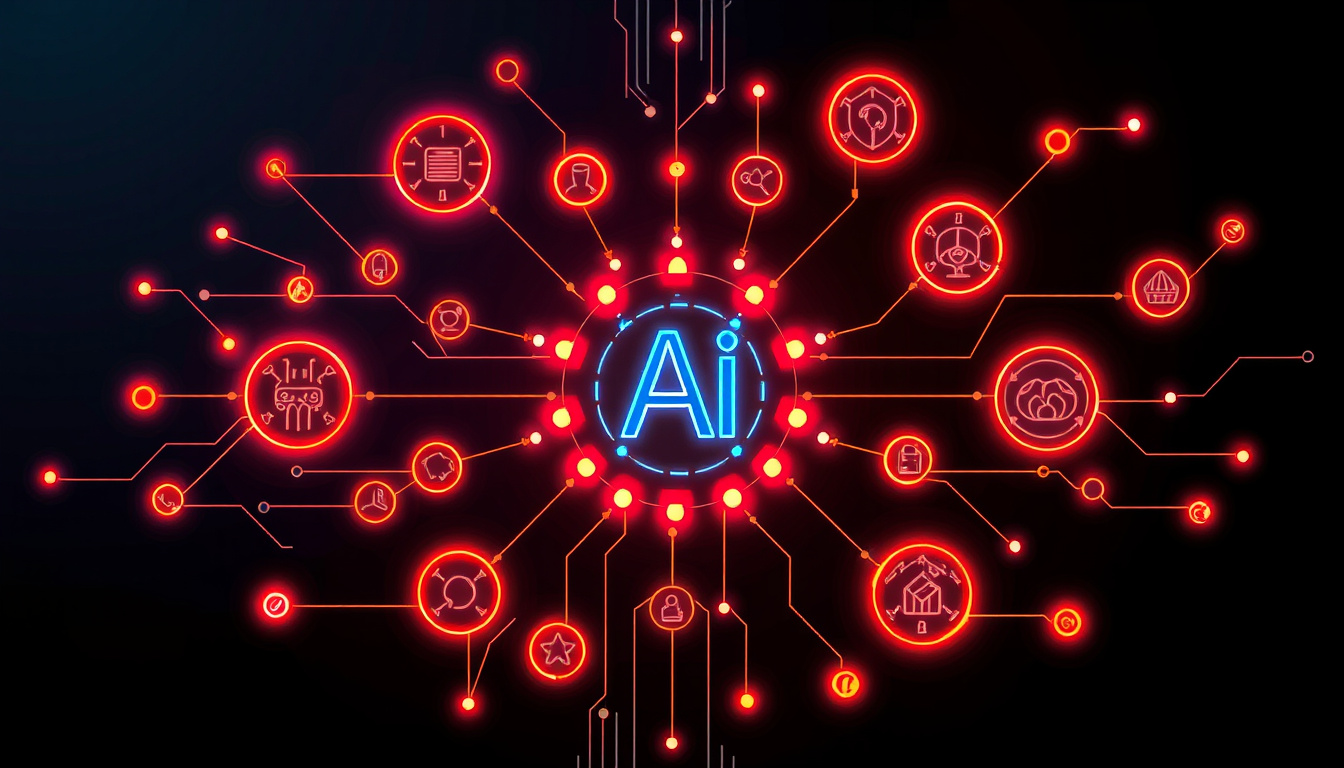In the rapidly evolving world of artificial intelligence, agent frameworks are becoming essential tools for developers aiming to create intelligent, autonomous systems. These frameworks provide the foundational structures that enable agents—software entities capable of perceiving their environment and taking actions to achieve goals—to operate efficiently and effectively. As AI applications grow more complex, understanding agent frameworks is crucial for building scalable, reliable, and adaptive AI solutions. In this article, we’ll delve into what agent frameworks are, why they matter, and how they are revolutionizing modern AI development.
What Are Agent Frameworks?
At their core, agent frameworks are software platforms designed to facilitate the development, deployment, and management of autonomous agents. These frameworks provide the necessary tools, libraries, and guidelines to streamline the creation of agents that can sense their environment, process information, make decisions, and act accordingly. They serve as the backbone for developing multi-agent systems, robotics software, and intelligent applications.
Using an agent framework simplifies the complex process of implementing AI agents by offering pre-built modules for common tasks such as communication, reasoning, learning, and decision-making. This accelerates development cycles, improves system robustness, and ensures agents can interact seamlessly within larger ecosystems.
Why Are Agent Frameworks Important in Modern AI?
The significance of agent frameworks in contemporary AI development cannot be overstated. Their importance stems from several key advantages:
1. Modularity and Reusability
Agent frameworks promote modular design, allowing developers to reuse components across different projects. This modularity supports scalability and reduces redundancy.
2. Standardization of Communication
Frameworks often include standardized protocols (like FIPA ACL) for agent communication, which makes it easier to develop interoperable agents that can cooperate within multi-agent systems.
3. Simplified Development Process
By providing ready-to-use building blocks, agent frameworks lower the barrier to entry for creating complex autonomous systems, even for less experienced developers.
4. Enhanced Reliability and Maintenance
Frameworks come with tested libraries and tools that improve system stability and make maintenance more manageable.
5. Support for Complex Tasks
Agent frameworks facilitate the handling of sophisticated AI tasks such as reasoning, planning, and learning, which are essential in fields such as robotics, smart assistants, and autonomous vehicles.
Popular Agent Frameworks in Use Today
Several agent frameworks have gained popularity among AI developers. Some of the most widely adopted include:
- JADE (Java Agent Development Framework): An open-source framework written in Java, JADE simplifies the development of multi-agent systems with a rich set of features for communication and behavior management.
- ** SPADE (Smart Python Agent Development Environment):** Built with Python, SPADE supports messaging and multi-agent coordination, making it accessible and easy to integrate with AI and IoT systems.
- ** Jason:** A platform that enables the development of agents based on BDI (Belief-Desire-Intention) architecture, suitable for complex decision-making scenarios.
- ** Akka:** Though not solely an agent framework, Akka provides a toolkit for building concurrent, distributed, and resilient message-driven applications, often used in multi-agent systems.

How to Choose the Right Agent Framework
Selecting the appropriate agent frameworks depends on your project requirements. Consider the following factors:
- Programming Language: Choose a framework compatible with your preferred language (e.g., Python, Java, C++).
- Complexity of Tasks: For simple automation, lightweight frameworks might suffice; for complex reasoning, more comprehensive platforms are better.
- Scalability Needs: Ensure the framework can handle the scale of your system—whether minor or extensive multi-agent ecosystems.
- Community Support and Documentation: A robust community and thorough documentation ease the development process.
- Integration Capability: Ensure the framework integrates well with other tools and AI components in your stack.
Implementing AI with Agent Frameworks: A Step-by-Step Overview
To successfully develop a modern AI system using agent frameworks, follow these steps:
- Define your system’s goals and requirements.
- Select the most suitable agent framework based on your needs.
- Design your agents’ architecture, including roles and communication protocols.
- Develop individual agents, leveraging framework libraries for perception, decision-making, and action.
- Implement communication protocols to facilitate agent interactions.
- Test agents individually and within multi-agent configurations to ensure stability and performance.
- Deploy your system and monitor for issues, iterating as necessary for improvements.
Benefits of Adopting Agent Frameworks in AI Development
Embracing agent frameworks offers numerous benefits:
- Accelerated development timelines due to reusable components.
- Improved system robustness through standardized communication and behavior management.
- Enhanced ability to handle complex, distributed tasks like IoT coordination or autonomous navigation.
- Simplified maintenance and scaling, thanks to modular design principles.
- Better simulation of real-world autonomous systems for testing and training.
Frequently Asked Questions (FAQs)
1. What are the key features of effective agent frameworks?
Effective agent frameworks typically include features such as communication protocols, modular architecture, support for multi-agent coordination, reasoning capabilities, and tools for debugging and monitoring.
2. How do agent frameworks differ from traditional software development frameworks?
Unlike traditional frameworks that focus on application-specific functionalities, agent frameworks are tailored for creating autonomous, interactive agents that can perceive, decide, and act independently within dynamic environments.
3. Can agent frameworks be integrated with machine learning?
Yes, many agent frameworks support integration with machine learning modules, enabling agents to adapt and improve their behavior based on data and experience.
Citing External Authority
According to a comprehensive overview by Stanford University, agent frameworks significantly enhance the ability to develop scalable and flexible autonomous systems capable of complex interactions and decision-making processes (source).
Conclusion: Unlocking AI Potential with Agent Frameworks
In today’s AI landscape, agent frameworks are indispensable tools for developing autonomous systems that can perceive, reason, and act intelligently within complex environments. They simplify the creation of scalable, reliable, and adaptable AI solutions, making them a cornerstone of modern AI development. Whether you’re building robots, IoT systems, or intelligent virtual assistants, leveraging the right agent framework can accelerate your project’s success and open new horizons in AI capabilities.
Ready to elevate your AI projects? Start exploring different agent frameworks today, and harness their power to build the next generation of autonomous systems. Your journey toward smarter, more efficient AI begins here.




